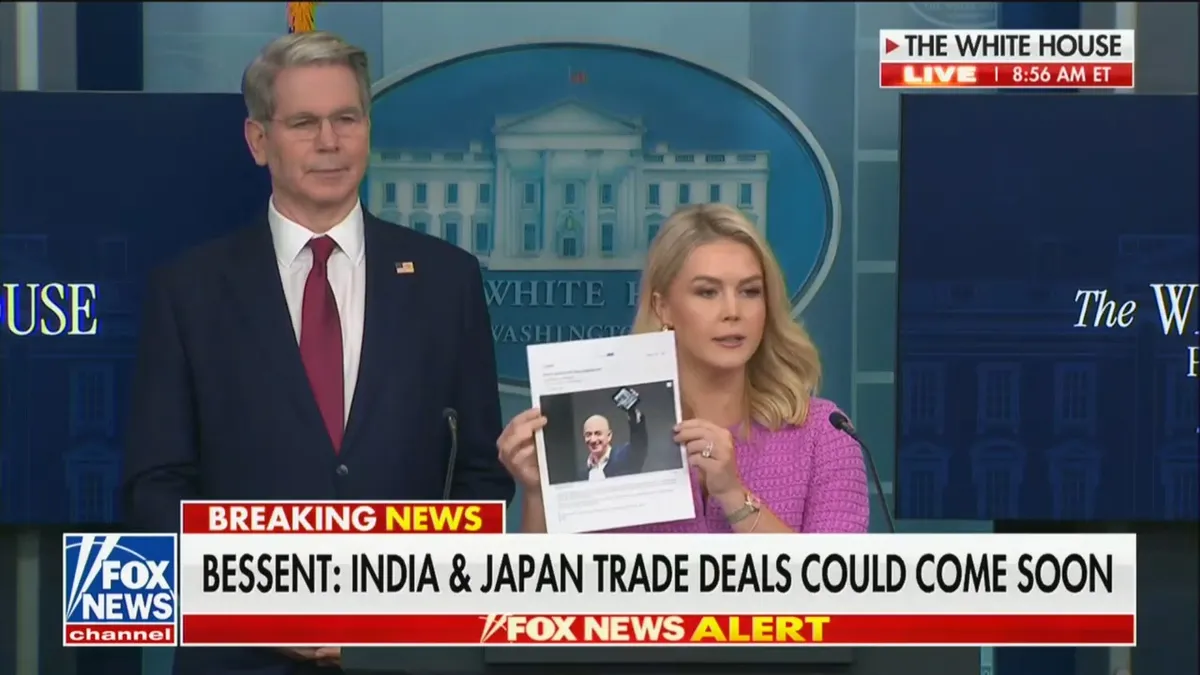
In a recent press briefing, White House Press Secretary Karoline Leavitt expressed strong discontent regarding Amazon's decision to reveal to customers the direct costs associated with President Donald Trump's tariffs on products. This announcement has sparked significant controversy and discussion about the implications of such transparency in the e-commerce sector.
According to a report by Punchbowl News, Amazon is set to showcase how much of each item's price is influenced by tariffs. This move is seen by the White House as a politically charged action, intended to shift public perception. During the press briefing, Leavitt stated, “I just got off the phone with the president about Amazon’s announcement. This is a hostile and political act by Amazon!”
Leavitt did not hold back in her critique, questioning why Amazon chose to implement this transparency now, particularly when the Biden administration has faced accusations of contributing to soaring inflation, the highest levels the country has seen in 40 years. “Why didn’t Amazon do this when the Biden administration hiked inflation to the highest level in 40 years?” she asked rhetorically.
Furthermore, Leavitt referenced a story from four years ago, which she labeled as “recent,” highlighting Amazon’s previous partnership with a Chinese propaganda organization. She suggested that this relationship aligns with Amazon's current decision to emphasize tariff costs, stating, “It’s not a surprise because as Reuters recently wrote, Amazon has partnered with a Chinese propaganda arm. So this is another reason why Americans should buy American.”
When pressed about Amazon founder Jeff Bezos and his political affiliations, particularly whether he still supports Trump, Leavitt refrained from commenting directly on their relationship. Instead, she reiterated her stance on Amazon's actions, declaring, “This is certainly a hostile and political action by Amazon.”
As the situation evolves, it remains to be seen how Amazon’s decision to highlight tariff costs will impact consumer perceptions and the broader political discourse surrounding e-commerce and international trade policies.